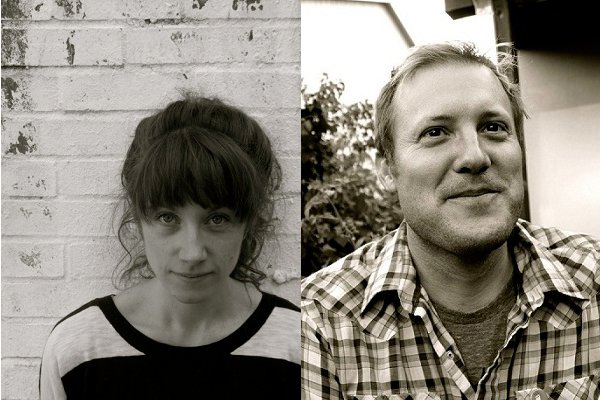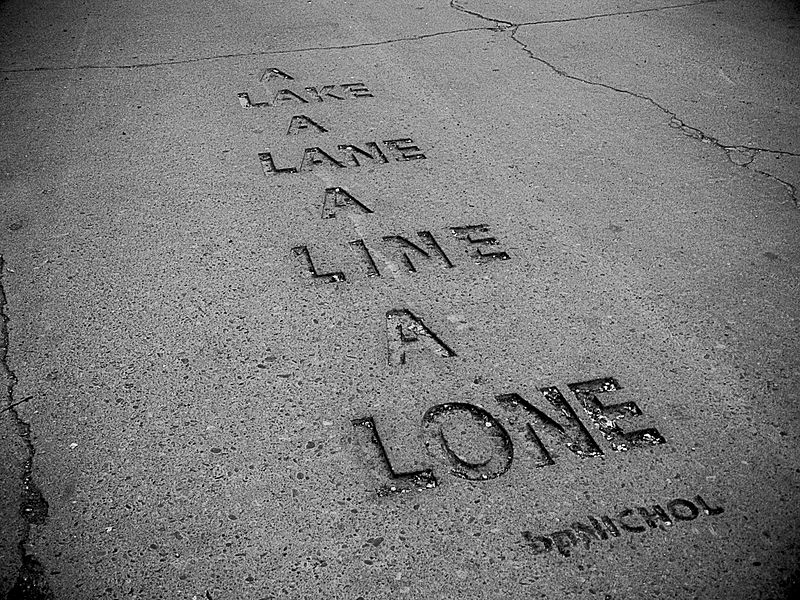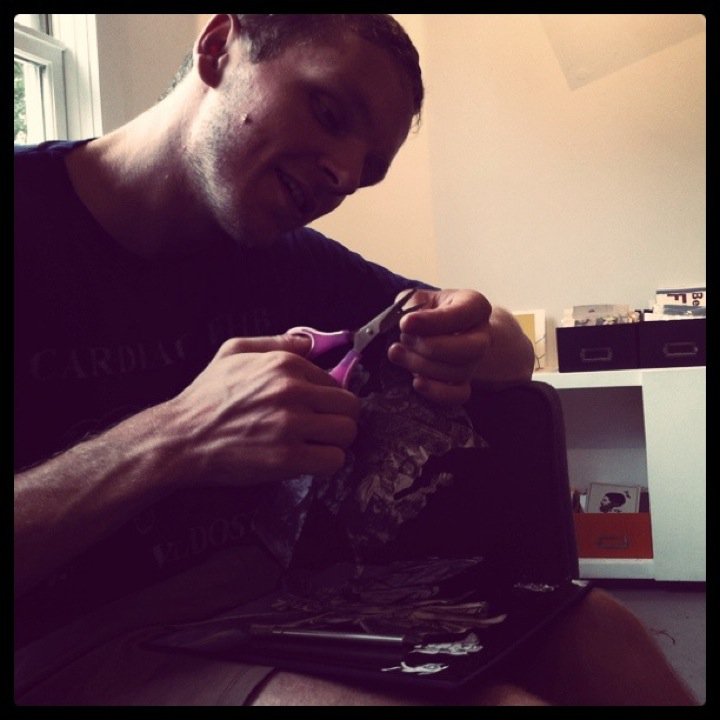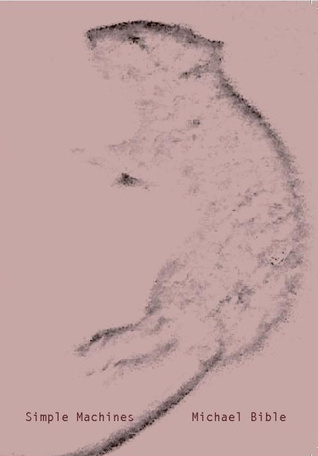Blake Butler
http://www.gillesdeleuzecommittedsuicideandsowilldrphil.com/
Blake Butler lives in Atlanta. His third book, There Is No Year, is forthcoming April 2011 from Harper Perennial.
http://www.gillesdeleuzecommittedsuicideandsowilldrphil.com/
Blake Butler lives in Atlanta. His third book, There Is No Year, is forthcoming April 2011 from Harper Perennial.
You missed the live reading but you can still check out the books I read from if you are on the internet. Here they are, I recommend them all highly:
Lightning Rods by Helen DeWitt [New Directions]
selected unpublished blog posts of a mexican panda express employee by Megan Boyle [Muumuu House]
Beauty Was The Case That They Gave Me by Mark Leidner [Factory Hollow]
0.174 by Gordon Massman [New York Quarterly Press]
Simple Machines by Michael Bible [Awesome Machine]
The Trees The Trees by Heather Christle [Octopus Books]
The Flame Alphabet by Ben Marcus [Knopf]
The Hermit by Laura Solomon [Ugly Duckling]
Coeur de Lion by Ariana Reines [reissue, Fence]
How The Days of Love and Diptheria by Robert Kloss [Nephew]

The excellent Brad Listi has booted up a new lit podcast, Other People, where he holds in-depth conversations with a variety of authors, at the same time rigorous and playful. Having just done one with Brad myself, I’ve spent the last week digging through some of the quickly growing archives, including Ron Currie, Jr., Jessica Anya Blau, Emma Straub, and many more forthcoming. Find more info and listen online here, or download for free from iTunes.

Heather Christle & Zachary Schomburg have hit the road up the west coast for a week-ish to bring your words and things. Do a look and do a go!
October 6-11
poetrytour.tumblr.com
Before/after readings the poets will have second-hand objects for sale, including small kitchen appliances, cassette tapes, athletic equipment, sweaters, and issues of National Geographic. Items will be sold with a unique collaborative poem by Christle & Schomburg. No early birds.
Dates as follows… READ MORE >
Sam Ross: Paul, your book begins with an epigraph from bpNichol:
From there the book erupts into a series of sonnet-dialogues with a host of personages, personifications, and “others”–from Whales, to Celibacy, to Mayakovsky as a Pony. Are these dialogues a means of approaching a dialogue with the self (as bpNichol suggests), mocking attempts at such a dialogue, or are the Others meant to be fragments of a unified self or whole (I’m thinking of a title of one of the Other Poems which begins: “We are made up of smaller version of ourselves stacked up on top of the smaller versions of ourselves….”). Maybe all three? Also, look at this!

(I like this.) READ MORE >
Pindeldyboz the web presence published a story by me titled “Susan” and then rejected something else using a terse tone in the rejection email and specifically mentioned that I had used a certain word too many times or something. I think the editor was a person named Whitney. I felt at the time that Pindeldyboz had high street cred. I think at one point I made a list of goals to achieve and one of them was to be published by Pindeldyboz. Around that time I also had feelings of confusion about their name. I never saw the print mag because they had stopped doing the print version by the time I was aware of it. Mostly I remember it thinking it had a street cred higher than internet literary magazines that were likely to publish whatever by me, and the name “Whitney,” and the story “Susan,” and the harsh rejection letter.
– Brandon Scott Gorrell

2011 has been a big year for Mark Leidner. Besides being one of the best things going on twitter, he’s also released two books: The Angel in the Dream of Our Hangover, a book of aphorisms from Sator Press; and Beauty Was The Case That They Gave Me, a book of poems from Factory Hollow Press. Each are singular in that they somehow manage to be both hilarious and uncannily gorgeous in their method of exploration, seeming to hyper-compress big ideas into forms that in lesser hands would seem absurd. Over the past couple weeks, Mark and I exchanged some emails about his books, sincerity, humor, religion, logic, and terror, among other things.
* * *
Butler: The Angel in the Dream of Our Hangover reads mostly like a book of aphorisms, which is an interesting format to take up. I think a lot of it reads as very sincere, even when it is using strange spins on the traditional aphorism, such as fatherfucker, or what some would consider “ridiculous imagery” such as punching water. I wonder if you knew you were writing a book of aphorisms, if you see it that way, and how this began to come together and form a book?
Leidner: I was trying to write aphorisms on purpose. The book didn’t begin that way though. Initial drafts contained more ironic or jokier stuff – the kind of thing that in the heat of the moment on Twitter can be exciting – which is how Ken Baumann the publisher first approached me – proposing a book that would begin as a carefully selected arrangement of tweets – but as the book grew, we felt the center start to cohere around the aphorism. A line like “what if hot dogs were the cut off horns of meat unicorns” can be interesting on Twitter because in Twitter it will burst into your feed like a surprise, it’ll be free, and there won’t by any high-minded literary expectation waiting for it in you. But copied & pasted into the literary form of the book and it becomes much more boring (at least to me) especially if it’s a book I’ve paid for, because while briefly interesting, its central juxtaposition doesn’t target anything I more than superficially care about. Great tweets give you a huge reward up front at the expense of lasting power. But a good aphorism rewards you more the more you think about it, partly because it is attached to some enduring concern. But that’s their downfall. Generalizing about grand themes is didactic – so the challenge of writing them in a way that honored complexity was very exciting, and pushed me into ridiculous imagery that felt both personal and universal. READ MORE >
 Michael Bible is the author of Cowboy Maloney’s Electric City, as well as the chapbooks Gorilla Math and My Second Best Bear Rug. He was winner of the ESPN: the Magazine/Stymie fiction prize. He lives in Oxford, Mississippi where he edits Kitty Snacks.
Michael Bible is the author of Cowboy Maloney’s Electric City, as well as the chapbooks Gorilla Math and My Second Best Bear Rug. He was winner of the ESPN: the Magazine/Stymie fiction prize. He lives in Oxford, Mississippi where he edits Kitty Snacks.
Michael Kimball: I’m curious: How did you get the title? That feels like it must have been a key to writing the piece.
Michael Bible: As far as Simple Machines goes, the title actually came to me after I wrote it, but you’re right, it sort of crystallized it for me. I started the manuscript after I read The Policeman’s Beard is Half Constructed and I was playing around with random sentence generators and ESL textbooks. I love sentences that are used as examples for school. (Has someone written a book of word problems? Also, that would be a good title. Probably somebody’s written it.) There is an oddness to those example sentences that I love, “bad” writing as “good” writing. They have a kind of weird beauty and they seemly have no context but somehow make stories anyway. Simple Machines is also something I learned about in school so it made sense that that would be a good title. READ MORE >
New from Semiotext(e) is Jarett Kobek’s ATTA, “a fictionalized psychedelic biography of Mohamed Atta that circles around a simple question: what if 9/11 was as much a matter of architectural criticism as religious terrorism?”
He prepares himself, watches television, hopes the box displays violence. But television is coy, intimates killings as abstractions. Beatings, certainly, beatings and brutality. But minimal death. Always the moment after. Police crash into a room, find a body, hunt the killer. But the actual kill? Off-screen. Or with guns. And what can he learn from guns?
Atta opens a video rental account, chooses movies that help with knowledge of death. He rejects Hollywood fantasies, imperialist propaganda efforts, prefers outlandish tales of monstrous abuse. The Horror section. Blood explodes in these films, bright red replica splashes on skin. READ MORE >